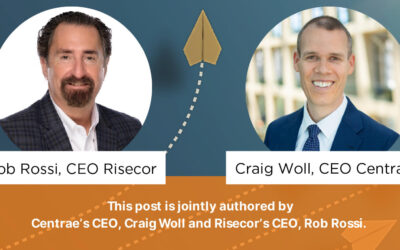- No clearly defined Ideal Client Profile (ICP)
- A flawed structure
- A lack of rigor in the sales process
According to Gartner. “45% of CEOs rank growth among their top 3 strategic priorities. 62% of CFOs agree.” In this high-interest, inflationary environment, there just isn’t any room for error if you’re a company with aggressive growth goals, especially leading to an exit.
1. No identified Ideal Customer Profile
We found it all too common that their reps were calling on ‘anyone who could buy’ vs. companies that want to buy and can benefit from their solution. This is the equivalent to shooting in the dark leading to wasted effort, lower conversion rates, and reduced overall efficiency that produced longer sales cycles. Potential customers suffer from inconsistent messaging. They get confused when they interact with the brand whether it’s on the company website or sales rep messaging. The impact is diminished brand authority, lack of feedback loop and a loss of focus on value creation.
Lack of Feedback Loops. Understanding your ideal customer is not just about sales; it also informs product development, customer support, and other critical functions. Without a clear ICP, these departments might not receive the feedback necessary to improve and innovate.
Loss of Focus on Value Creation. Instead of focusing on refining and improving the solution to cater to a specific audience’s needs, the company may be spread too thin trying to be everything to everyone. This can hinder the development of a truly exceptional product or service.
CEO Takeaway: The absence of an identified Ideal Customer Profile is not just a sales and marketing issue; it permeates through various aspects of a business, affecting its efficiency, profitability, and long-term sustainability. Without total clarity on who your customer is, there is enormous waste in failed marketing campaigns, highly-compensated sales teams producing mediocre results and internal confusion on the focus of the business.
2. Flawed Go To Market (GTM) Structure
CEOs who rely too much on talent and not enough on the ideal way to leverage the value proposition in the market experienced wide swings in performance. Relying solely on a person’s skills and charisma to drive market penetration is not scalable and doesn’t provide a replicable framework.
Difficulty in Data-Driven Decision-Making: “Data, data everywhere and not a drop to drink!” You can be surrounded by metrics, but without consensus on what the impact metrics are, your leadership team won’t be able to be decisive, getting buried in the flaws of the data or the definitions of “new revenue” or “active user”. Worse yet, there will be more time spent in meetings discussing what the actual challenges and priorities are, versus taking action.
Lack of Scalability: A successful business needs a GTM strategy that is scalable. If the approach hinges on specific individuals’ talents, it becomes challenging to replicate that success across different regions, markets, or segments. This not only makes it difficult to get new leaders up to speed, it limits the company’s growth potential.
Vulnerability to Talent Turnover: Relying heavily on individuals means that if key team members leave, the company is left in a vulnerable position. It may struggle to maintain the same level of performance, potentially leading to a drop in revenue and market share.
CEO Takeaway: A flawed Go-to-Market structure that relies too heavily on talent without a well-defined strategy can lead to inefficiencies, scalability challenges, and an overall vulnerability to market changes. While charismatic talent or those with a prestigious pedigree may woo you in the short term, they are not set up for success without a process and framework to work within.
3. Lack of Rigor in the Sales Process
We find that more often than not, sales reps are not only highly optimistic, they have urgency levels that are off the charts. While it’s considered a good skill to be progressing commitment from a potential client, we noticed that sales reps were ‘speeding’ through the sales process in an effort to close the deal before the company and their buying decision team was ready to buy. The results are catastrophic, leading to reduced customer trust, lower conversion rates, risk of negative reviews and undermined sales team morale.
Reduced Customer Trust: When rushed through the sales process it creates a perception of pushiness and disregard for the customer’s needs. As a result, customers either feel pressured into making a buying decision they later regret, or cause them to disengage from the buying process altogether.
Risk of Negative Reviews: When a customer is rushed into a buying decision before they feel ready, the sales rep didn’t thoroughly understand their pain points or needs. The customer doesn’t feel the benefits of the purchase and has buyers remorse causing returns, cancellations or contract terminations. Likewise, a prospect that was rushed through the process and decides to exit the pipeline, will not be a champion of your company when talking to their colleagues or other potential prospects.
Undermined Sales Team Morale: A sales team that’s not winning feels frustrated and burned out. They feel pressure to meet unrealistic sales targets and close deals at any cost, which can lead to dissatisfaction and high turnover rates.
CEO Takeaway: A lack of rigor in the sales process can have far-reaching negative impacts on customer satisfaction, trust, and the company’s overall revenue and reputation. It’s imperative for the CEO to implement processes and provide training that emphasizes a more thorough, customer-centric approach to sales, even if it means sacrificing short-term gains for long-term success.
Conclusion
In summary, a clearly defined Ideal Client Profile will improve your win rates and the clearly defined structure will enable you to make data-driven decisions. And finally, a discipline around the sales process will retain your top talent when they have clarity on how to strategically progress and win deals.
As a seasoned expert in guiding management teams through the growth process, Centrae enables high-growth companies to implement a proven framework, bringing alignment around the GTM plan and focus on execution.


